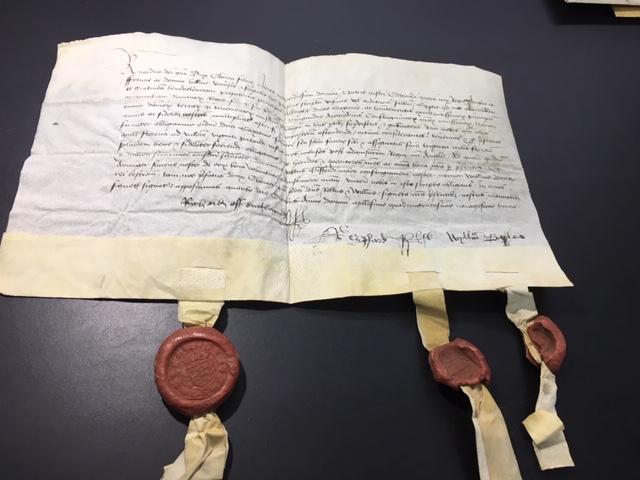.png/800px-The_Princes_in_the_Tower_by_John_Everett_Millais_(1878).png) |
| Richard Duke of York and Edward V by Millais |
I was finally able to read Philippa Langley's new book The Princes in the Tower: Solving History's Greatest Cold Case and as with her previous work on Richard III, which I reviewed HERE, was deeply impressed by the level of research. I have seen historians mockingly dismiss Philippa's latest work, which they obviously had not read, because anyone who reads it could not help but be impressed by the careful scholarship of not only the author, but of the team of researchers involved in "The Missing Princes Project." From the Amazon page:
In
1483, Edward V (age twelve) and his brother Richard, Duke of York (age
nine), disappeared from the Tower of London. History has judged they
were murdered on the orders of Richard III. This new book reveals the
truth behind the greatest unsolved mystery in English history.
Philippa
Langley took the world by storm when, against all the odds and after a
seven-year investigation, she discovered the grave of King Richard III
(1452-1485) in a Leicester car park. A king finally laid to rest, the
rediscovery and reburial of Richard III was watched by a global audience
of over 366 million.
Now, in The Princes in the Tower,
Langley reveals the findings of a remarkable new research initiative:
"The Missing Princes Project." In the summer of 1483, Edward V (age 12)
and his brother Richard Duke of York (age 9), disappeared from the Tower
of London. For over five hundred years, history has judged that they
were murdered on the orders of their uncle, Richard III.
Following
years of intensive research in British, American, and European
archives, Philippa has uncovered astonishing new archival discoveries
that radically change what we know about the fate of the princes in the
Tower. Established by Langley in 2016, "The Missing Princes Project"
employs the methods of a cold-case police inquiry. Using investigative
methodology, it aims to place this most enduring of mysteries under a
forensic microscope for the very first time.
In The Princes in the Tower, Langley
narrates the painstaking investigative work and research of the
project. By questioning received wisdom, she and her international team
of researchers shed light upon one of history's greatest miscarriages of
justice, in turn revealing a surprising and phenomenal untold story.
The premise of the book is to approach the case of the missing Edward V and Richard Duke of York as a police inquiry, going over day-by-day accounts of witnesses as well as the usual letters, receipts, bills, royal orders, and household records from the summer of 1483 when they "disappeared." Who sailed where and who went into the countryside and who was seen at the Tower are all gone over with a fine tooth comb. All the characters involved are studied as closely as documentation allows. Many "facts" historians have taken for granted are shown to be questionable in the light of the new findings, many of which are just old findings given a second look.
What makes The Princes in the Tower unique is the international team of historians and archivists who came together to tackle the mystery with unrivaled determination. They found documents in various archives in what had once been the realms of Mary of Burgundy and her husband Maximilian of Austria, documents which had either been lost or ignored. Each document was given to experts to be authenticated. Mary of Burgundy's beloved stepmother was Margaret of York, the aunt of the missing princes. Margaret acknowledged both the young men who came forward following the defeat of Richard III at Bosworth claiming to be Edward V and Richard Duke of York as her nephews and she supported them each financially and militarily. She had nothing to gain and much to lose by giving her support. Margaret was highly regarded by her contemporaries for her political acumen; I cannot see her doing anything frivolously.The research on this aspect of the case is gone over quite thoroughly so that no one after reading it can ever see the era in the same way again. While the author presents all the evidence and gives her educated opinion she allows the readers to make up their own minds. I am impressed at how all the information was pulled together in a way that can be read and mulled over by non-historians or by amateur historians. Yet I found the footnotes to be as riveting as the main text and poured over them for days. It may be police work but it is also history at its best.
The sites and articles available online on the topic of the princes are abundant.
HERE is one on Edward IV's pre-contract to Lady Eleanor Talbot.
HERE author Matthew Lewis tackles the discrepancies in the version of events ascribed to Sir Thomas More.
And who was the eldest brother of the princes, the Marquess of Dorset?
Share







.png/800px-The_Princes_in_the_Tower_by_John_Everett_Millais_(1878).png)












No comments:
Post a Comment